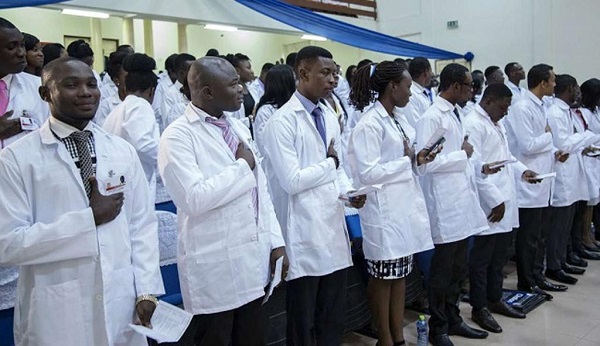
The World Health Organization (WHO) has called on the Nigerian government to address the challenges associated with the pressing demand for a sufficient number of skilled healthcare professionals in Nigeria to strengthen the country’s health system.
In a recent statement, the WHO country representative, Dr. Walter Mulombo, stressed the vital role of adequately trained and motivated health workers who are distributed equitably, especially at the primary healthcare (PHC) level. This emphasis aims to ensure fair and accessible healthcare services for all Nigerians while establishing a resilient and effective health system.
Mulombo made these remarks during the national launch of the Community-Based Health Research Innovative-training and Services Programme (CRISP), organised by the National Primary Health Care Development Agency (NPHCDA). The CRISP initiative aims to empower community medicine resident doctors to provide care at PHCs within their respective universities’ catchment areas while also transferring knowledge to the health workers at these facilities. This programme is set to be implemented nationwide.
The COVID-19 pandemic has demonstrated the significance of highly skilled and motivated health workers who continue to deliver care even in the most challenging circumstances. Mulombo emphasized that the strength of any health system relies on the capacity and adequacy of its health workforce to meet the population’s health needs and deliver quality services.
To bridge the skills gap at PHCs, the CRISP initiative leverages existing human resources for health and taps into the expertise available at higher levels of care. However, Mulombo highlighted the importance of carefully designing this approach to avoid transforming PHCs into extensions of tertiary hospitals. The primary goal should be to provide primary healthcare services that address the population’s priority health needs.
Mulombo commended the plan to recruit health workers and deploy them to PHC facilities across the country, recognising it as a commendable step. He assured WHO’s support to the NPHCDA’s CRISP programme, offering technical assistance to enhance the performance and retention of health workers in rural and remote areas.
The UNICEF chief of health in Nigeria, Dr. Eduardo Celades also spoke at the event, emphasising that the launch of CRISP marks a significant milestone in Nigeria’s journey to achieve its maternal and newborn health goals. He emphasised the importance of universal health coverage (UHC) priorities outlined in the National Health Policy and the National Strategic Health Development Plan II (NSHDP II). These documents aim to reduce maternal and newborn mortality rates by ensuring timely, safe, appropriate and effective healthcare services before, during and after childbirth.
Nigeria currently faces high maternal mortality rates (MMR) and infant (IMR) and under-five mortality rates (U5MR). Celades stated that the Federal Ministry of Health and its relevant parastatals are fully committed to changing this narrative. Over the past decade, strategic actions and initiatives have been implemented to improve maternal, neonatal and child health outcomes. The country has adopted various global strategies and guidelines, including coordination platforms, quality of care frameworks, and guidelines for comprehensive newborn care and pneumonia control.
However, the availability of skilled human resources, particularly at the primary healthcare level, remains a significant challenge. There is a severe deficiency in the quantity and distribution of health workers in primary healthcare facilities. According to a 2022 report from the NPHCDA, only 22 per cent of PHC facilities have the required quantity and quality of health workers, especially critical midwifery skills in rural areas. The country falls far below the global standard of 10 doctors and 30-40 nurses and midwives per 10,000 persons, with only about three doctors and five nurses per 10,000 people.
The CRISP initiative represents a crucial step in addressing the shortage of skilled health workers. It aims to facilitate a strategic shift in primary healthcare transformation by deploying resident doctors from teaching hospitals and federal medical centres to PHC facilities. These doctors will provide support in service provision and on-the-job capacity building for PHC health workers. The CRISP programme will be implemented across all 36 states of the Federation and the Federal Capital Territory in a phased manner.
As a multi-stakeholder investment, CRISP will be funded by the government of Nigeria, with support from development partners and philanthropists. It is a collaborative effort to strengthen Nigeria’s health workforce and improve healthcare access and quality at the grassroots level. With the WHO and UNICEF’s backing, the country is poised to make significant strides in achieving its healthcare goals and ensuring the well-being of its population.

